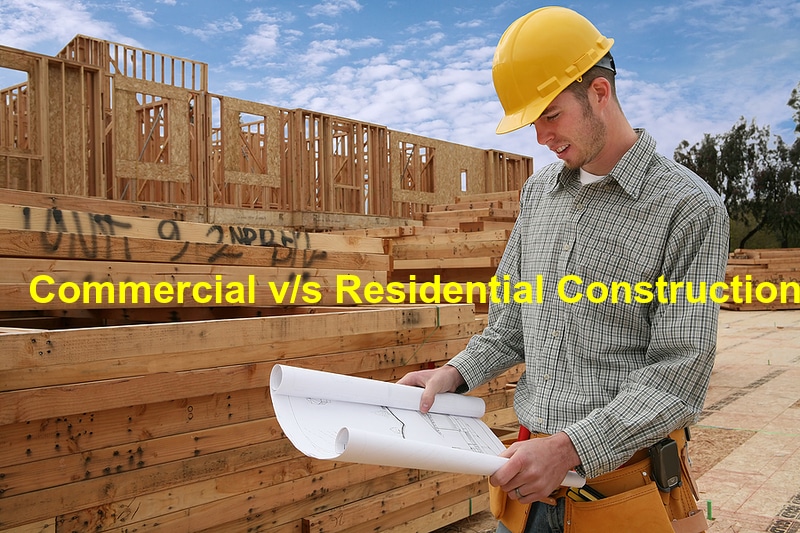Ever wondered how residential and commercial construction stack up against each other? These two make up the largest portion of the entire construction industry as we know it. However, there are several distinct differences between the two that stem from a number of factors including the building materials, time taken for completion and the construction approach adopted. Here’s more.
1. Permitting and Codes
Whereas both residential and commercial properties require regulatory permits and licenses to construct, the building code requirements are stricter and less flexible in the construction of commercial properties than in residential premises. What’s more, commercial construction entails a number of pre-set guidelines that have to be strictly adhered to, for the purposes of both safety and functionality.
2. The Building and Construction Materials
Residential construction differs sharply from commercial construction from the quantity and quality of building material that is usually needed to oversee the completion of the project. Whereas most homes tend to employ a timber frame construction in its design, commercial buildings are mainly built using a combination of steel, concrete and mortar.
3. Cost of Construction
It goes without saying that commercial buildings cost significantly more to put up than residential premises, even if there are both of the same sizes. This huge difference in the costs does not just come from the material used or compliance standards but also from the equipment, type of labour used and general overhead costs incurred. That’s actually the reason why many commercial projects are either funded by the government, private developers, consortiums or uber-rich owners.
4. Equipment Used in the Building Process
Since commercial construction projects tend to be bigger and larger in size and scale, they often necessitate an array of sophisticated and specialized equipment to oversee. We are talking about cranes, earthmoving machinery and a number of other particularized equipment. Besides, for job quality and project safety, the handlers and operators of these machines have to be extremely experienced and qualified individuals. Residential construction, on the other hand, employs a more casual and laid back approach. It is not surprising, for example, to see neighbours and friends chipping in to help with the work.
In Closing
Commercial projects tend to have a stricter and shorter delivery deadline than their equivalent residential projects, despite being more sophisticated and involving. The emphasis on residential projects is more on aesthetics compared to functionality and efficiency in commercial projects.
References: Nationwide Construction, MySitePlan, BuilderSpace




